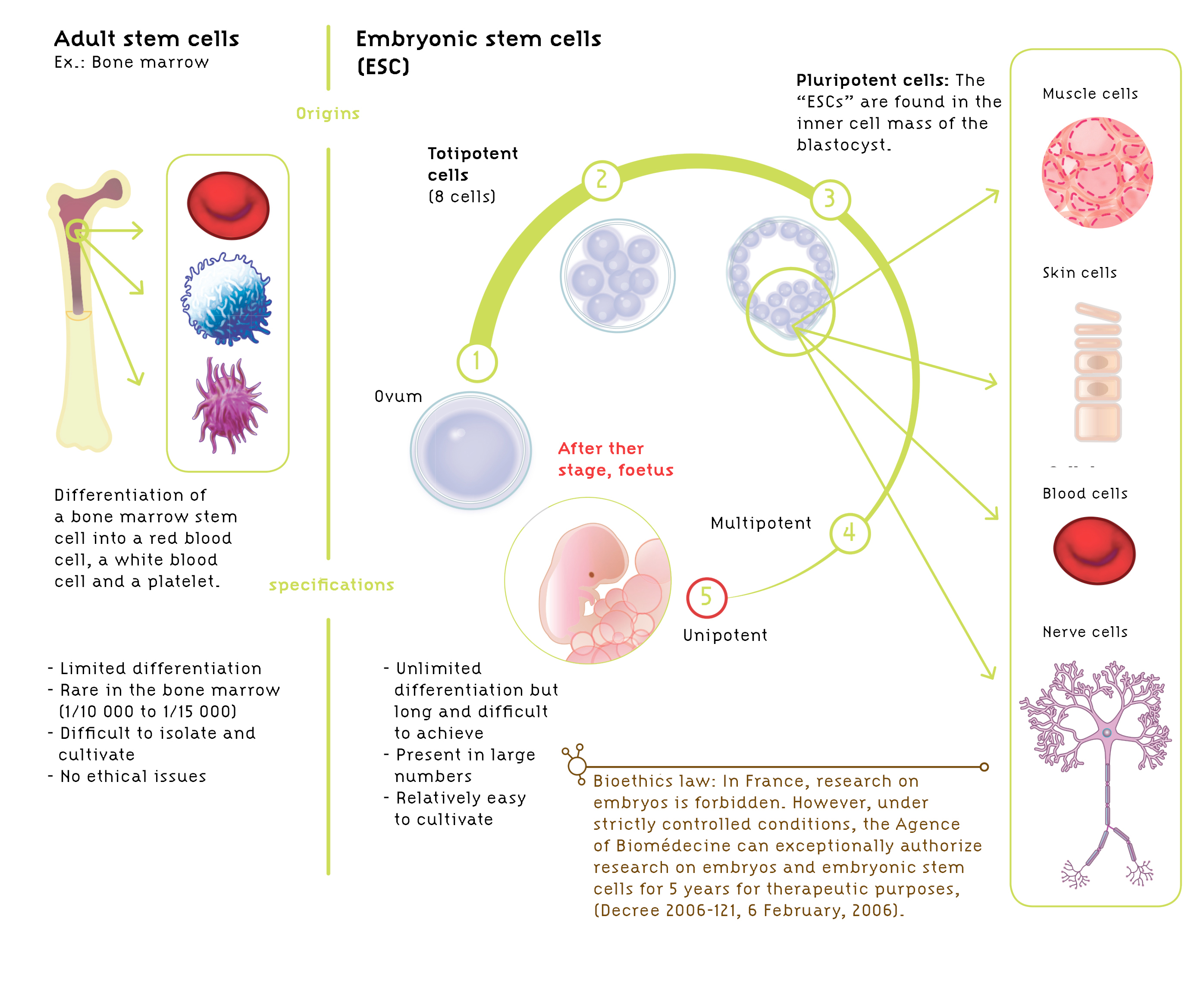Cell therapy consists in utilizing stem cells to repair damaged tissues and organs in an organism. But what exactly is a stem cell? A stem cell is a cell which is capable of self-renewal and of giving rise to several different types of cells.
From adult stem cells…
There are numerous types of stem cells in the adult organism—skin, bone marrow, liver, muscle, etc. These are adult stem cells. They participate in the renewal of all of our tissues. When it divides, an adult stem cell gives rise to another stem cell and a cell which will differentiate and specialize.
These adult stem cells have several advantages.
- They can be removed directly from the patient, cultivated and re-injected. There is no risk of rejection.
- There are no ethical issues related to their utilization.
Their disadvantage is that they have a limited capacity for differentiation. Thus a stem cell from the bone marrow can differentiate into red blood cells, white blood cells and platelets, but cannot differentiate into a muscle cell or a nerve cell, for example. Furthermore, they are rather rare and difficult to isolate and cultivate.
…And embryonic stem cells
Today we know another type of stem cell which is particularly interesting: the embryonic stem cell, said to be pluripotent. These are found in the embryo when it consists of only a few cells, between the 5th and 7th day of development.
These cells have numerous advantages:
- Their capacity for differentiation is unlimited: they can become skin cells, muscle cells, liver cells, or other cell types.
- They are easy to grow, and capable of proliferating indefinitely.
In France, the Biomedical Agency can exceptionally authorize research on embryos and embryonic stem cells for 5 years for therapeutic purposes, under strictly controlled conditions .
An alternative: iPS cells
Induced pluripotent stem cells, or iPS cells, are adult stem cells which scientists have succeeded in transforming into cells with the characteristics of embryonic stem cells. Researcher John Gurdon and scientist Shinya Yamanaka received the Nobel prize for medicine in 2012 for their work on iPS cells.
The scientists rejuvenated these adult cells by feeding them a cocktail of genes using a retrovirus. Once the reprogramming is effective, the cell, which was differentiated to begin with, can multiply and produce all kinds of cells.
Although these iPS cells may be used for basic research, their utilization on patients cannot be envisaged at the moment. Certain genes and retroviruses utilized for the reprogramming may trigger a process leading to cancer.


